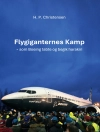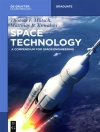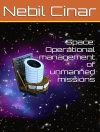At the time of ?nalising this second volume of the ?Yearbook on Space Policy? which covers the period mid-2007 to mid-2008, Europe is as visible and strong in the area of space activities as never before. Its space probes are present on the Moon, around Mars, and on Saturn?s Moon Titan, and are chasing asteroids and comets; Ariane V is the most successful commercial launch vehicle; and more and more European space applications satellites are in operation. Finally, with the successful launch of the Columbus Orbital Facility (COF) – the most prominent highlight of this period which is also depicted on the cover of this Yearbook – and the ?rst Automated Transfer Vehicle (ATV), Europe has become a decisive player in human space?ight. This is accompanied by new policy initiatives on the ministerial level which have been bringing the European Space Agency and the European Union steadily closer. Europe?s outstanding development and positioning in the space ?eld is based not only on Europe?s successful engineering and scienti?c capabilities and capacities, but also on the forceful political determination of all European actors to maintain and even further their engagement in the use of outer space. And it is this political determination which provides the focus for this ?Yearbook on Space Policy?. The Yearbook describes and analyses the contexts and contents of space policy. Its primary ?eld of investigation is Europe, but it also covers the whole range of global space activities and their in?uence on European endeavours.
Table of Content
The Year in Space 2007/2008.- European Space Activities in the Global Context.- Developments in Space Policies, Programmes and Technologies throughout the World and in Europe.- Views and Insights.- Space in the Treaty of Lisbon.- Galileo and the Issue of Public Funding.- Europe’s Approach to Space Situational Awareness: A Proposal.- The European Union Proposal for a Code of Conduct for Outer Space Activities.- International Cooperation in Space Exploration: Lessons from the Past and Perspectives for the Future.- Exploration — How Science Finds Its Way in Europe.- The Political Dimension of Europe’s New Human Spaceflight Capabilities.- Space Technologies and the Export Control System in the United States: Prospects for Meaningful Reform.- Space for Resources.- The United Nations and Outer Space: Celebrating 50 Years of Space Achievements.- Facts and Figures.- Chronology: July 2007–June 2008.- Country Profiles.- Bibliography of Space Policy Publications. July 2007–June 2008.












